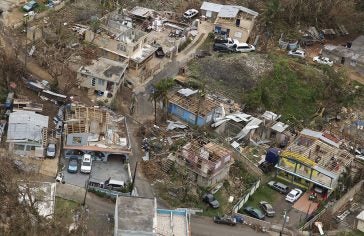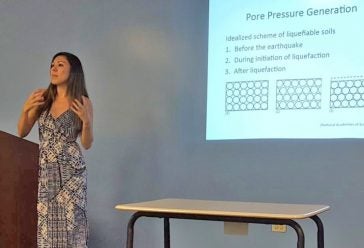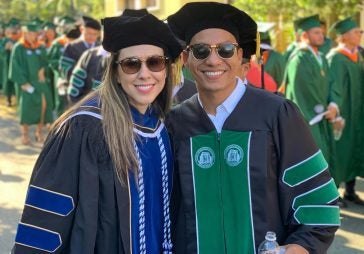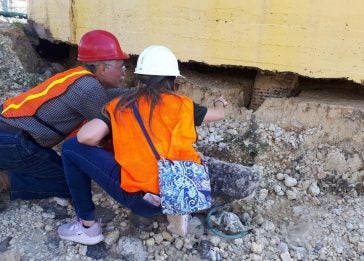
By Neil Nachbar
In the past four years, Puerto Rico has been decimated by hurricanes and earthquakes. Within a two-week span in 2017, two major hurricanes left the Caribbean island without power, clean drinking water and very few passable roads. As Puerto Rico has tried to bounce back, it was devastated again by Mother Nature, in the form of multiple earthquakes in the last 14 months.
Alesandra Morales-Vélez, who earned a doctorate in civil engineering from the University of Rhode Island in 2014, is helping Puerto Rico’s infrastructure become more resilient by teaching engineering students about sustainable practices.

Since 2015, Morales-Vélez has been an assistant professor of geotechnical engineering at the University of Puerto Rico Mayagüez, where she attained her bachelor’s and master’s degrees in civil engineering.
Q: How did you become interested in civil engineering?
A: My parents raised me to believe I could be anything I wanted, that careers had no gender. I remember going on family road trips and looking at different construction sites in Puerto Rico and thinking to myself, “one day, I’m going to build something!”
Q: Why did you decide to pursue your doctorate at URI?
A: I knew very little about Rhode Island, but I knew about the work of Professor Chris Baxter through my advisor at the University of Puerto Rico. My advisor went to Virginia Tech with Professor Baxter and they remained friends and colleagues for many years. Professor Baxter’s work in the area of soil characterization, shear wave velocity and laboratory testing was exactly what I was looking for.

Q: Why did you decide to become an engineering professor?
A: My mother is a physical education teacher at an elementary school, so teaching always felt normal to me. I did a few internships as an undergraduate student with a construction company that was in charge of remodeling public housing in Mayagüez. It was fun and I learned a lot, but that line of work wasn’t for me.
Q: How did your experience at URI influence how you instruct your students?
A: The first time I taught a class was as a doctoral student at URI. My advisor, Professor Baxter, would sit on my first lectures and point out what I did well and what I needed to improve upon. That feedback is very important when you are starting your career.

Q: How has remote learning gone during the pandemic?
A: The University of Puerto Rico Mayagüez switched to online teaching in March 2020 and continued with online teaching this year. It’s very challenging for mothers who have young kids and no day care, like myself. I have a 2-year-old daughter running around the house while I prepare my lectures or go to meetings.
It’s also been difficult for the students, especially since the power and internet are not reliable in Puerto Rico.
Q: What is the current condition of Puerto Rico’s infrastructure?
A: Sadly, it is very poor. We experienced an earthquake sequence that started in December 2019 and it is still going. We were struck by a 6.4 earthquake on January 7, 2020, causing a lot of damage in the southwest area of Puerto Rico.
Q: What can be done to rebuild the infrastructure and make it more resilient?
A: There’s a lot that needs to be done. Regular maintenance of the infrastructure, including roads, schools and hospitals, is a challenge. As civil engineers, we can build the infrastructure around us, but our curriculum needs to introduce the importance of infrastructure that is climate-resilient.
We’ve been introducing multi-hazard analysis, sustainability and resilience to students early in their college careers. We have a new minor in Sustainable and Resilient Infrastructure and the first cohort is graduating in 2021.
